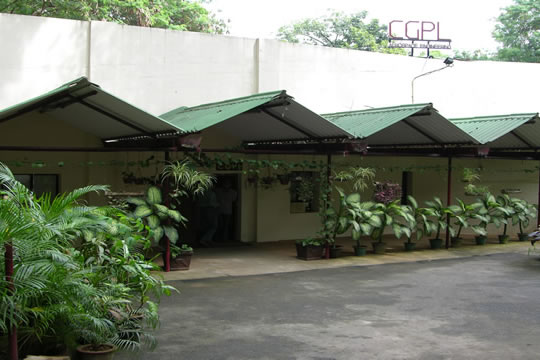ABETS
Events
Patents
Installations
Emerging Research
CGPL stands for Combustion, Gasification and Propulsion Laboratory and is a part of the Department of Aerospace Engineering, at the Indian Institute of Science. The work on Combustion and Propulsion has been going on from 1970 and the work on biomass gasification was started in 1982. While the early work was done in the main department premises, the experimental work on Rocket propulsion that was started in 1970 at the department was carried out in a “distant safe” environment that has grown into the current laboratory space with the addition of laboratories from government funded projects over a twenty year period. The work on gasification that got started in 1982 in a small way in the main department got shifted to the current premises (a small room at the northern end of the laboratory) in 1984.

Further to efficient ways of harnessing energy through gasification process, CGPL has aslo developed patented technologies, for removal of hydrogen sulfide from biogas (ISET Process), Precipitated silica from rice husk ash (IPSIT Process), Efficient biomass stoves. Apart from these technologies CGPL has also been involved in techniques for charcoal production, activated carbon. It has been striving to address the energy requirements of biomass-based industries and offer turnkey solutions. A run down through these pages should enlighten you more about these.
One of the principal features of the work at the laboratory has been a pursuit of a combination of analytical, computational, modeling and experimental studies on problems of topical interest to India but meaningful in the international arena. The laboratory has had the tradition of participation in International Combustion symposia where the acceptance criteria for presentation are more rigorous than journal publication. The pursuit of rigorous work in a frontier area for international relevance and development of Technologies relevant to developing countries have occurred with no conflict over the last three decades.
The development work became so substantive and relevant to the country and the World itself that a separate society called Advanced Bioresidue Energy Technology Society – ABETS got established in the laboratory to function as an independent society under the chairmanship of the director of the Institute. The aims of the society are to (a) conduct advanced research and development activities at the laboratories at IISc on bioresidue-to-energy interpreted in the broadest term, (b) improve the design through the feed back from field installations in Industrial and village environment, (c) conduct special short term courses, (d) conduct awareness and training programs for technical people and administrators at several levels, (e) provide opportunities for research for masters and Ph D students, (f) consider technology transfer to industrial houses and others to ensure adequate dissemination of the technology in India and overseas.
In order to pursue these activities funding for basic research have been sought from several agencies. The principal funding agency is the Ministry of Non-conventional Sources of Energy (MNES). Funding for carrying out special tests and developments are received from other private and governmental agencies (like TIFAC).
The ability to look at Biomass in the broadest perspective and conduct several classes of studies has led to an active laboratory in Biomass utilization that is very unique and it is appropriate to state that there is perhaps no other laboratory in any other university in the World with the kind of range and depth that is available at ABETS, IISc.
Scientists and biomass enthusiasts from India and abroad have come and spent days to weeks at the laboratory conducting experiments and receiving help at understanding the combustion/gasification behavior of select biomass.
Uniqueness of IISc Biomass Gasification Technology (PDF)